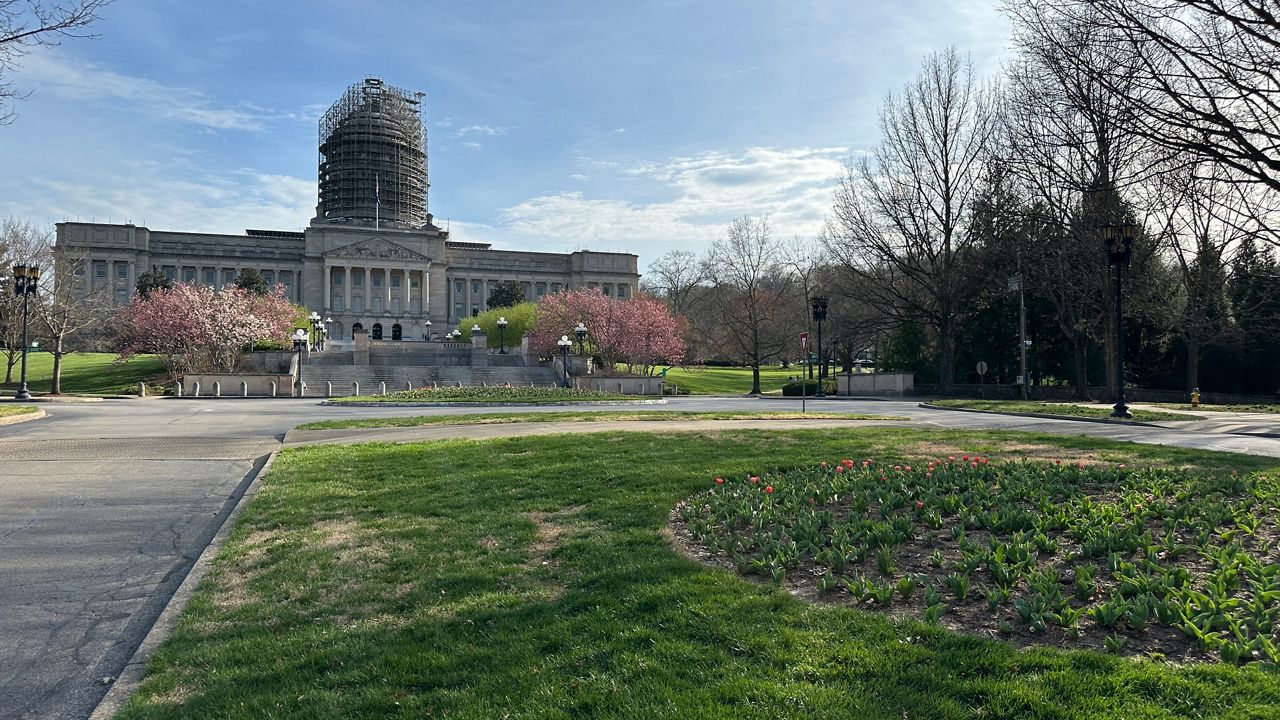FRANKFORT, Ky. — On the last day before the veto period, lawmakers in both chambers of the state legislature gave final approval to the state’s two primary budget bills.
House Bill 1 and House Bill 6 will now be delivered to the governor for action. Unlike with other bills, the governor has the ability to veto individual sections of HB 1 and HB 6.
The state’s operating budget for the next two years totals $102 billion. Education has been one of the most divisive areas of discussion this session. Per-student funding through the SEEK formula will see an increase of 3% in 2025 and 6% in 2026.
The budget also increases Tier 1 funding, a revenue stream for districts with less property value income, from 15% to 17.5%.
“There is not enough investment in K-12 public schools to give teachers and other personnel meaningful raises or even to match pre-recession levels of funding,” State Rep. Josie Raymond, D-Louisville, said in speaking against HB 6.
The budget does not directly grant teacher raises, electing to direct districts to use the increased SEEK allotment to address this.
“Districts are encouraged to make sure that they’re addressing the needs of their districts including their personnel and all of the other things that they have to account for,” State Rep. Jason Petrie, R-Elkton, said.
Student transportation would be funded 90% in year one and 100% in year two.
On Thursday, Gov. Andy Beshear, D-Kentucky, addressed House Bill 6 in his weekly Team Kentucky briefing.
“The SEEK dollars look like they’ll be bigger, but I think once it’s actually calculated, they’ll be fairly similar,” Beshear said. “We have got to get our educators a real raise if we’re going to be competitive with other states.”
HB 6 does give state employees and Kentucky State Police troopers a raise and earmarks tens of millions of dollars for clean and drinking water projects. It does not give state retirees a onetime 13th pension check.
House Bill 1, totaling $2.7 billion, will be used for various onetime expenses. Its funding will come from the state’s budget reserve trust fund, which is sometimes referred to as the rainy day fund. Currently, it has the highest balance in state history.
“This bill reflects a long period of intense discipline by the members of this body and the members of the House,” State Sen. Chris McDaniel, R-Ryland Heights, said.
HB 1 includes funding for several water and wastewater projects across the state, pays millions toward teacher pensions, allocates $100 million for revitalizing downtown Louisville and $10 million for affordable housing in Lexington.
HB 1 in its current form spends about $700 million less than the version proposed by the Senate.
“The biggest one is the reduction in the amount of road fund that’s appropriated by about $450 million,” McDaniel said.









